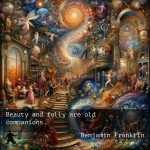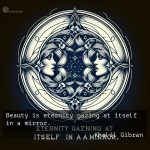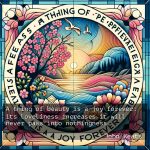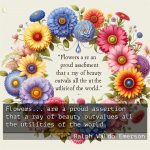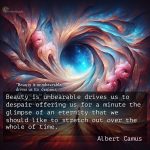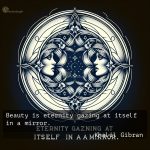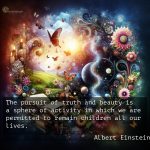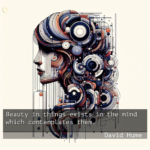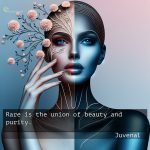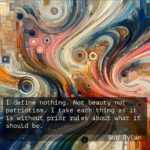This website uses cookies so that we can provide you with the best user experience possible. Cookie information is stored in your browser and performs functions such as recognising you when you return to our website and helping our team to understand which sections of the website you find most interesting and useful.

Confucius quotes on Beauty
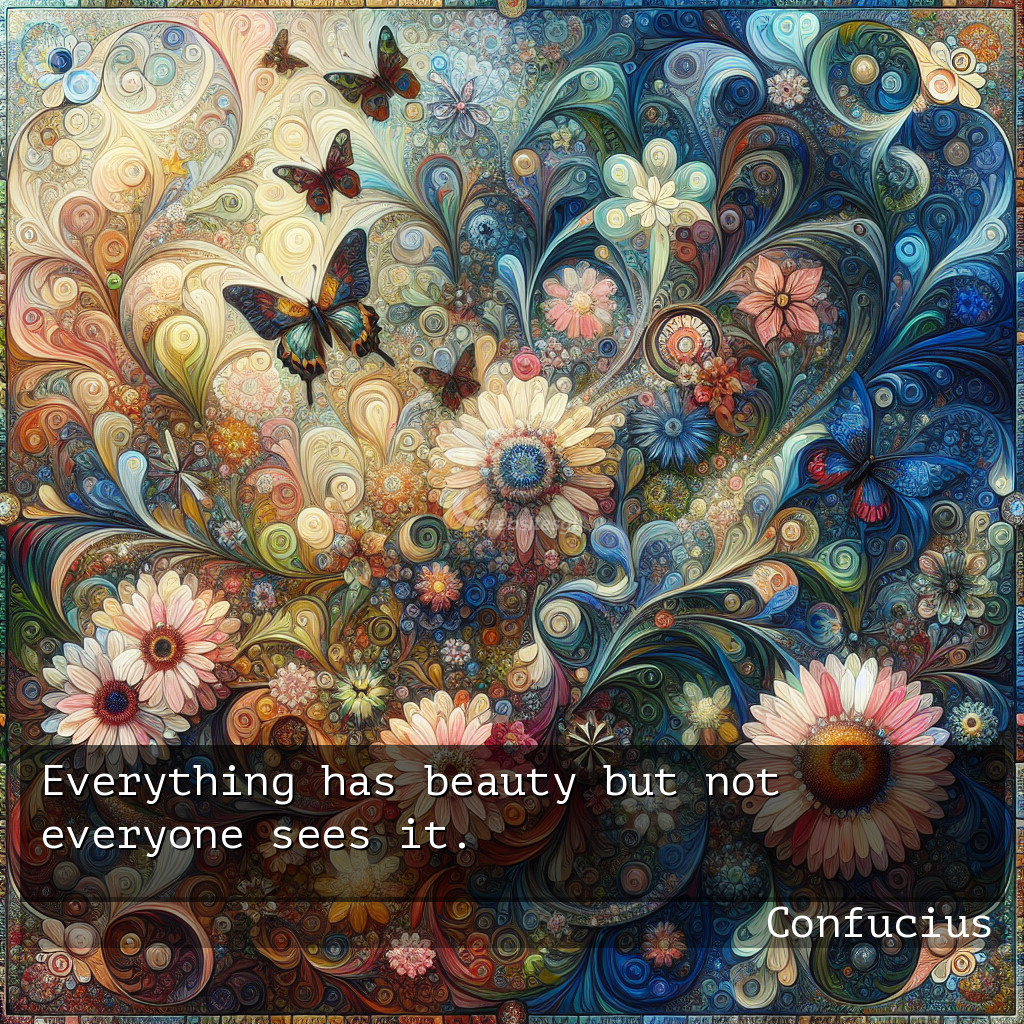
Confucius quotes on Beauty
Everything has beauty but not everyone sees it.
By: Confucius
Unveiling the Hidden Splendor in the Mundane
Imagine walking through a garden, your eyes skimming over the greenery, when suddenly a flower catches your attention. It’s not particularly vibrant or unique, yet you find yourself drawn to it, noticing the subtle play of light on its petals, the gentle sway in the breeze. This moment encapsulates a profound truth that has echoed through the ages: “Everything has beauty, but not everyone sees it.” This wisdom, often attributed to Confucius, invites us to explore the dynamics of perception and appreciation in our daily lives.
At first glance, the world can seem like a monotonous blur of routine and obligation. We rush from one task to the next, often overlooking the intricate tapestry of beauty that weaves itself into the fabric of our existence. Yet, if we pause, even for a moment, we might discover that beauty is not reserved for the extraordinary alone; it thrives in the ordinary, waiting to be acknowledged.
Beauty in the Everyday
Consider the laughter of a child, the warmth of a shared meal, or the comfort of a familiar melody. These experiences, though commonplace, hold a beauty that can elevate the spirit and enrich our lives. It’s not about grand gestures or breathtaking vistas; it’s about the beauty that resides in connection, in the shared human experience.
But how do we cultivate the ability to see this beauty? It begins with mindfulness, the practice of being fully present in the moment. When we are mindful, we open ourselves to the nuances of our surroundings, allowing us to appreciate the texture of life’s tapestry. We notice the way morning light filters through the leaves, the intricate patterns on a butterfly’s wings, or the sincere smile of a stranger. These details, once invisible in our rush, become vivid brushstrokes on the canvas of our perception.
Challenges to Seeing Beauty
It’s not always easy to see beauty, especially when we are faced with adversity or when life’s canvas seems to be painted in shades of gray. During these times, beauty can feel like a luxury, out of reach and irrelevant. Yet, it is precisely in these moments that seeking beauty can be a powerful act of resilience. It becomes a reminder that even in darkness, there are glimmers of light to be found.
Our own biases and preconceived notions can also blind us to beauty. We might dismiss something as mundane or unworthy of our attention because it doesn’t fit our definition of what is beautiful. By challenging these biases and expanding our understanding of beauty, we open ourselves to a world of wonder that was always there, just waiting to be seen.
Beauty as a Source of Motivation
Recognizing beauty in the world around us can be a profound source of motivation. It can inspire us to create, to appreciate, and to engage with life on a deeper level. When we see beauty in the process of learning, in the effort of work, or in the growth that comes from challenge, we are motivated to persist, to strive, and to excel.
Beauty can also be found in the act of improvement and self-development. As we work to better ourselves, whether through learning a new skill, fostering healthier habits, or cultivating kindness, we are adding to the beauty of our own character. This personal growth not only enhances our own lives but also contributes to the collective beauty of humanity.
Encouraging Others to See Beauty
One of the greatest gifts we can give to others is helping them see the beauty that surrounds them. By sharing our own perceptions and experiences, we can encourage friends, family, and even strangers to look beyond the surface and discover the richness of life. This can be as simple as pointing out a detail they might have missed or sharing a piece of art or music that moves us.
When we help others see beauty, we foster a sense of community and connection. We remind each other that despite our differences, we all have the capacity to perceive and appreciate the splendor in the world. This shared recognition can bridge divides and build empathy, creating a more compassionate and beautiful society.
Embracing Beauty in Ourselves
Finally, it’s essential to recognize the beauty within ourselves. Each of us has a unique combination of qualities and experiences that contribute to the mosaic of who we are. Embracing our own beauty means accepting ourselves, flaws and all, and recognizing the value we bring to the world.
When we see beauty in ourselves, we are more likely to act with confidence and purpose. We become more resilient, knowing that our worth is not contingent on external validation but is inherent in our being. This self-acceptance is a powerful force, enabling us to live authentically and to share our beauty with the world.
In conclusion, the beauty that Confucius speaks of is not a rare commodity, reserved for the few. It is an ever-present truth, woven into the very fabric of life. By choosing to see beauty in the world around us, in others, and in ourselves, we enrich our lives and the lives of those we touch. Let us open our eyes to the beauty that exists in every moment, and in doing so, let us transform the ordinary into the extraordinary.
FAQs about Confucius on Beauty
- What does the quote “Everything has beauty, but not everyone sees it” mean?
This quote suggests that beauty is present in all things, but it requires a certain perspective or mindset to recognize and appreciate it. It’s a call to be more observant and to find value in the world around us.
- How can I start seeing beauty in everyday life?
Begin by practicing mindfulness, which involves being fully present and engaged in the current moment. Pay attention to small details, find joy in simple pleasures, and challenge yourself to look beyond the surface of things.
- Can beauty be found in negative situations?
Yes, even in difficult or negative situations, there can be elements of beauty, such as the strength of the human spirit, acts of kindness, or lessons learned. Finding beauty in adversity can be a source of hope and resilience.
- Why is it sometimes hard to see beauty?
It can be challenging to see beauty due to factors like stress, routine, biases, or a narrow definition of what is considered beautiful. Overcoming these obstacles requires effort and a willingness to change one’s perspective.
- How can seeing beauty in the world motivate us?
Recognizing beauty can inspire us to appreciate life more deeply, to engage in creative pursuits, and to strive for personal growth. It can also motivate us to contribute positively to the world and to seek out meaningful experiences.
- Is it important to see beauty in ourselves?
Yes, seeing beauty in ourselves is crucial for self-acceptance, confidence, and authenticity. It allows us to recognize our worth and to share our unique qualities with the world.
- How can I help others see beauty?
You can help others see beauty by sharing your own experiences, pointing out details they might overlook, and encouraging them to find joy in the ordinary. By doing so, you can foster a sense of connection and empathy.
- Does the concept of beauty change over time?
Yes, the concept of beauty is dynamic and can change over time due to cultural influences, personal experiences, and societal shifts. What is considered beautiful can vary greatly from one person or culture to another.
- Can the search for beauty improve my life?
Actively searching for beauty can enhance your life by increasing your appreciation for the world, deepening your connections with others, and fostering a positive mindset. It can lead to a more fulfilling and joyful existence.
- Is beauty only visual, or can it be experienced in other ways?
Beauty is not limited to visual experiences; it can be found in sounds, tastes, textures, emotions, and actions. It encompasses any aspect of life that evokes a sense of wonder, appreciation, or connection.


